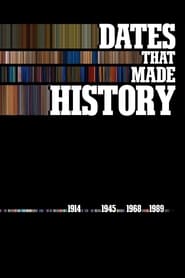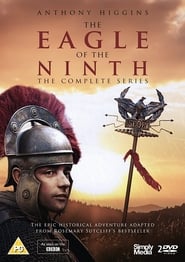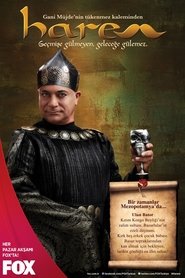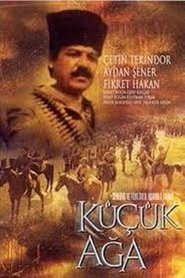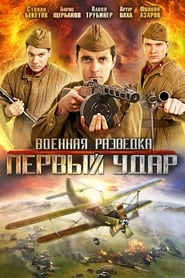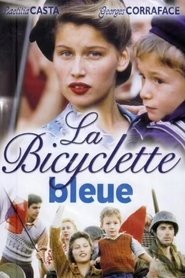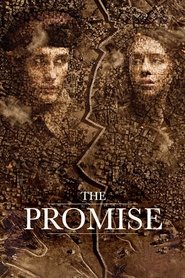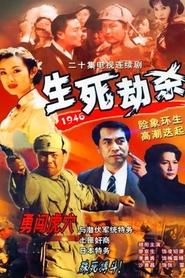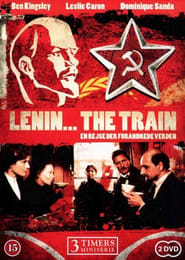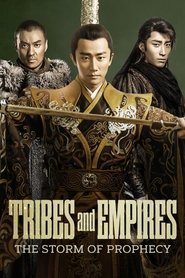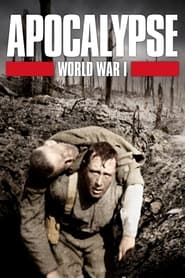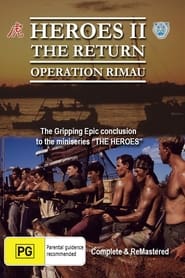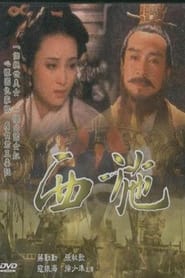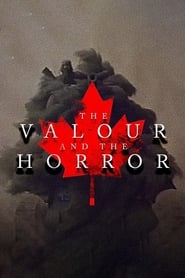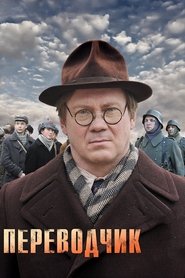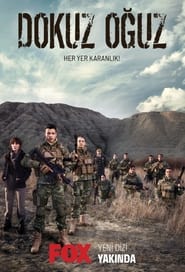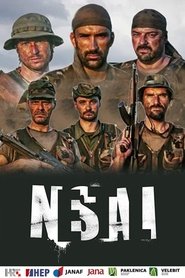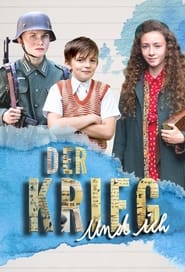Popular War Politics TV Series - Page 66
-
Dates That Made History
2018
star 8.9Historian Patrick Boucheron revisits the most important dates in history through the prisms of memory and collective imagination. -
The Eagle of the Ninth
1977
star 7.3In Britannia in 130, a young Roman officer named Marcus Flavius Aquila and his freed slave Esca search for the Ninth Legion's gold eagle standard, which vanished with the legion 13 years earlier. -
Harem
2012
-
Küçük Ağa
1984
-
Military Intelligence. The First Blow
2012
star 7During World War II the Red Army sends a special unit named "Zvezda" ("The Star") on a mission to conduct Guerilla warfare against the Germans in the Soviet Union. -
The Blue Bicycle
2000
The Blue Bicycle
2000
star 6.1Léa, the daughter of a wealthy Bordeaux family, is spending happy days at the Montillac family estate at the end of the 1930s. Radiant with youth, she charms all the men who meet her on the blue bicycle offered to her by her father. She is in deep love with Laurent, when she tells him, he lets her down. He is in love with Camille, Lea's best friend. The war sounds the death knell of her carelessness. She takes refuge in Paris. There, she finds Laurent, his secret love, who has just married Camille. During a party given him, she meets mysterious François -a friend of Laurent who works for the government. He goes right on and starts to win Lea's heart, but she is not interested. Laurent has to go to the front-line. He asks Lea to stay with Camille in Paris, to look after her and the unborn baby. But the German troops are progressing, and Léa and Camille are forced to leave the capital. -
The Promise
2011
The Promise
2011
star 8The story of a young woman who goes to present-day Israel/Palestine determined to find out about her soldier grandfather's involvement in the final years of Palestine under the British mandate. -
Life and Death 1946
2001
Life and Death 1946
2001
-
Lenin... The Train
1988
Lenin... The Train
1988
star 6In March 1917, amidst World War I, a sealed train carries Russian revolutionaries, led by Lenin, from Germany to St. Petersburg. Along the journey, political tensions and personal dramas unfold, culminating in a historic arrival. -
Tribes and Empires: Storm of Prophecy
2017
star 4.4Muyun Sheng, born from a spirit mother, is the unfavoured sixth son of the reigning Emperor Ming of Duan. Discovering an ancient painting by chance, he is captivated by the spirit locked inside (Panxi), and together, they promise to search for the most beautiful places on Earth. Muru Hanjiang, friend of Muyun Sheng, is the son of General Muru Shuo, famous for conquering the Eight Tribes of Han Province. Many years later, the descendant of the Eight Tribes Shuofeng Heye sows discord between the Muyun and Muru families. Only when the friendship and loyalty between these two families is rebuilt will the Duan Dynasty be safe from invasion by the Eight Tribes. This drama tells of the loyalty, friendship, enmity and romance between the young descendants during the twilight years of the Duan Dynasty. -
Apocalypse: World War I
2014
star 7.7Colorized historical footage in ascending order of World War 1. Not only the relatively known Flanders and France battles, but also the generally unknown Italian-Austrian, German-Polish-Russian, Japanese-German, Ottoman Empire- Allied and African German Colonies, and other unknown or forgotten fronts and battles. -
Heroes II: The Return
1991
star 8Heroes II: the Return is a 1991 Australian mini-series about Operation Rimau during World War II. The true and tragic story of Operation Rimau, one of the most daring raids of WW2. In September 1944 Ivan Lyon and 22 Australian and British troops attempted to blow up Japanese ships in Singapore. Just 10 miles away from the target they are discovered and so begin a long and desperate bid to escape to Australia. The series shows how after the war it is revealled that 13 men were killed during the pursuit and that the remaining 10 were murdered by the Japanese in a war crime. Tragically this was covered up and their killers were never charged while the men themselves never received any honours for their heroism. -
Xi Shi
1996
Xi Shi
1996
-
The Valour and the Horror
1992
Mini-series investigating three significant Canadian battles in World War II. -
Переводчик
2014
Переводчик
2014
-
Dokuz Oğuz
2023
-
Missing
2020
Missing
2020
After a military operation of limited operation, six Croatian soldiers (Prka, Sikira, Nervoza, Gradski, Delon and Pape) remained behind the enemy lines for 10 days before being cut off from the enemy lines. Soldiers have not known each other all their lives and have been brought together by war. People of different profiles meet. -
Kids of Courage
2019
Kids of Courage
2019
star 8This outstanding and sensitive drama series tells a young and family audience the stories of children who lived through a most difficult era in recent history - and who grew with its challenges. -
A Town Like Alice
1981
A Town Like Alice
1981
star 7.6Set against the brutal chaos of World War II, a love story begins that will take two lovers through a living nightmare of captivity, across three continents and two decades. -
Escape
1980
Escape
1980
Escape is an American anthology series that aired on the NBC network from February 11 to April 1, 1973. The show was a production of Jack Webb's Mark VII Limited for Universal Television. It aired on Sunday evenings at 10 p.m. Eastern, following the NBC Mystery Movie.
 Netflix
Netflix
 Amazon Prime Video
Amazon Prime Video
 Apple iTunes
Apple iTunes
 Apple TV Plus
Apple TV Plus
 Disney Plus
Disney Plus
 Google Play Movies
Google Play Movies
 Paramount Plus
Paramount Plus
 Hulu
Hulu
 HBO Max
HBO Max
 YouTube
YouTube
 fuboTV
fuboTV
 Peacock
Peacock
 Peacock Premium
Peacock Premium
 Amazon Video
Amazon Video
 The Roku Channel
The Roku Channel
 AMC+
AMC+
 Kocowa
Kocowa
 Hoopla
Hoopla
 The CW
The CW
 Vudu
Vudu
 Starz
Starz
 Showtime
Showtime
 PBS
PBS
 Pantaflix
Pantaflix
 FXNow
FXNow
 Tubi TV
Tubi TV
 Kanopy
Kanopy
 Comedy Central
Comedy Central
 Crunchyroll
Crunchyroll
 Microsoft Store
Microsoft Store
 Redbox
Redbox
 Sun Nxt
Sun Nxt
 ABC
ABC
 DIRECTV
DIRECTV
 Crackle
Crackle
 Fandor
Fandor
 Plex
Plex
